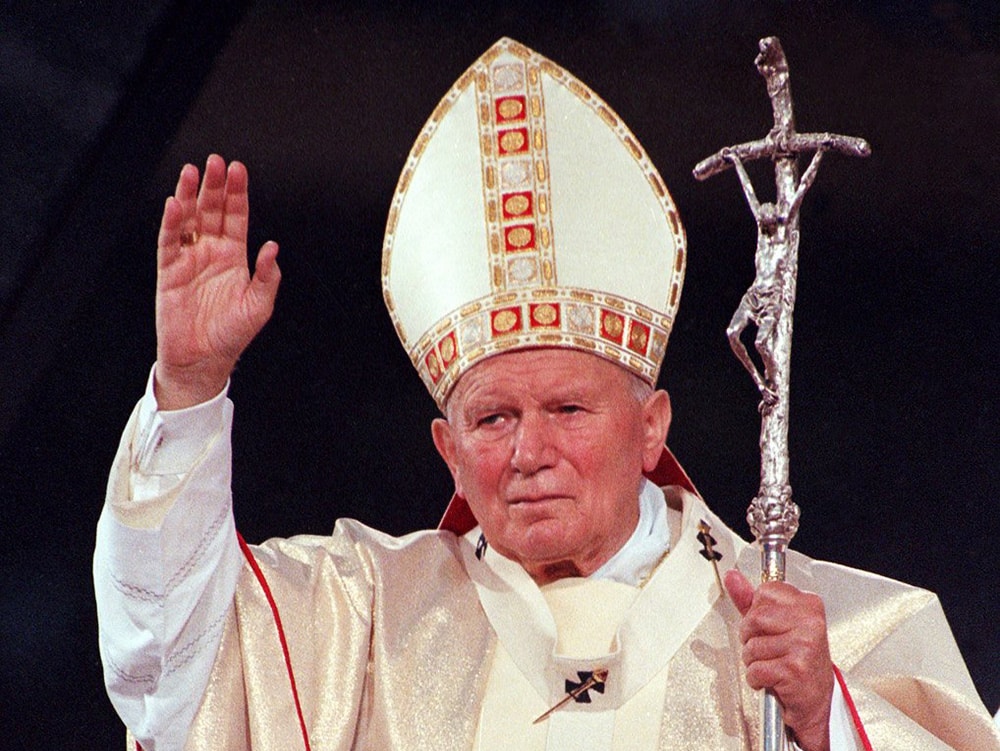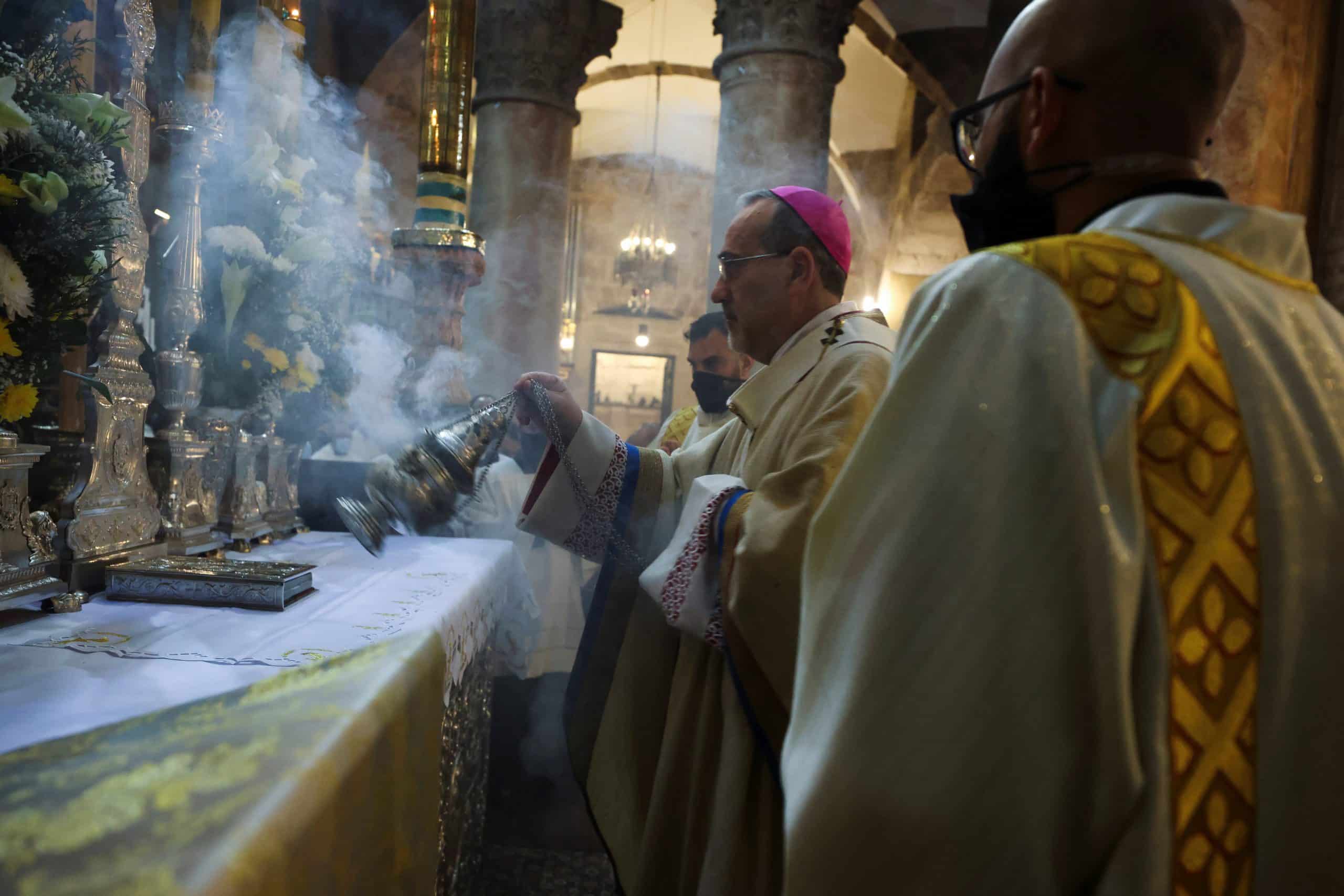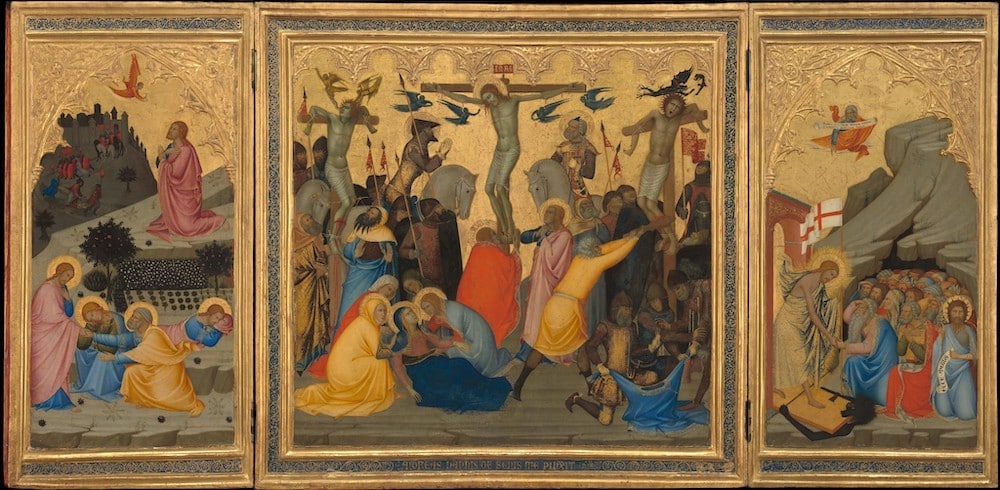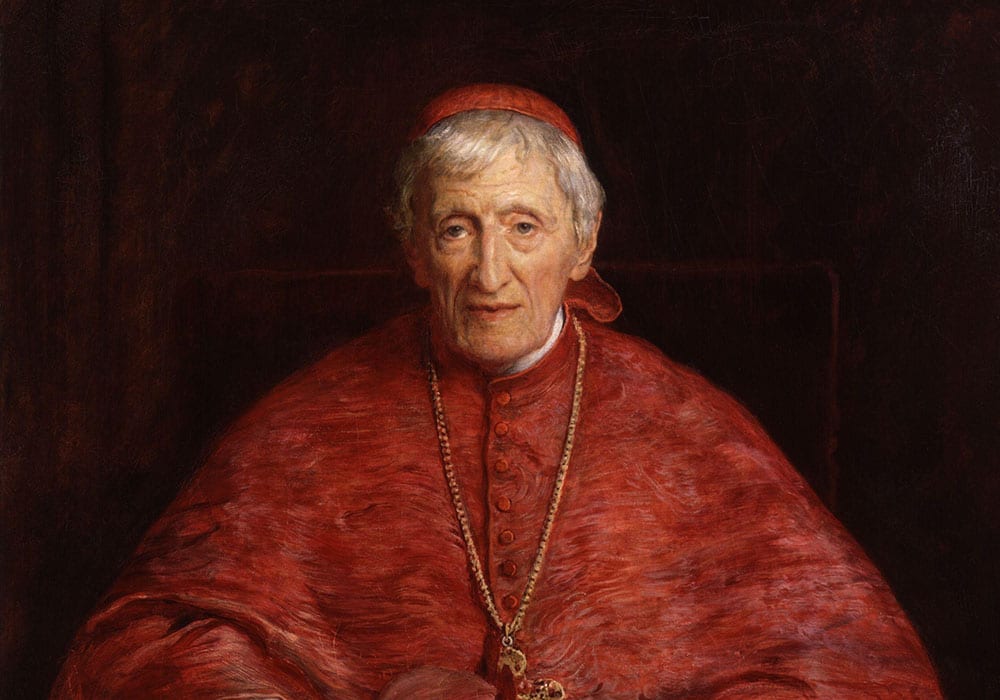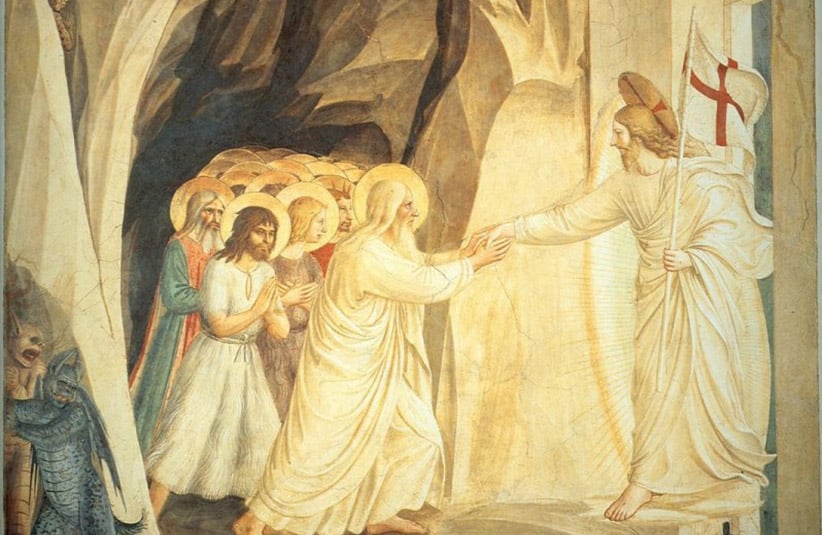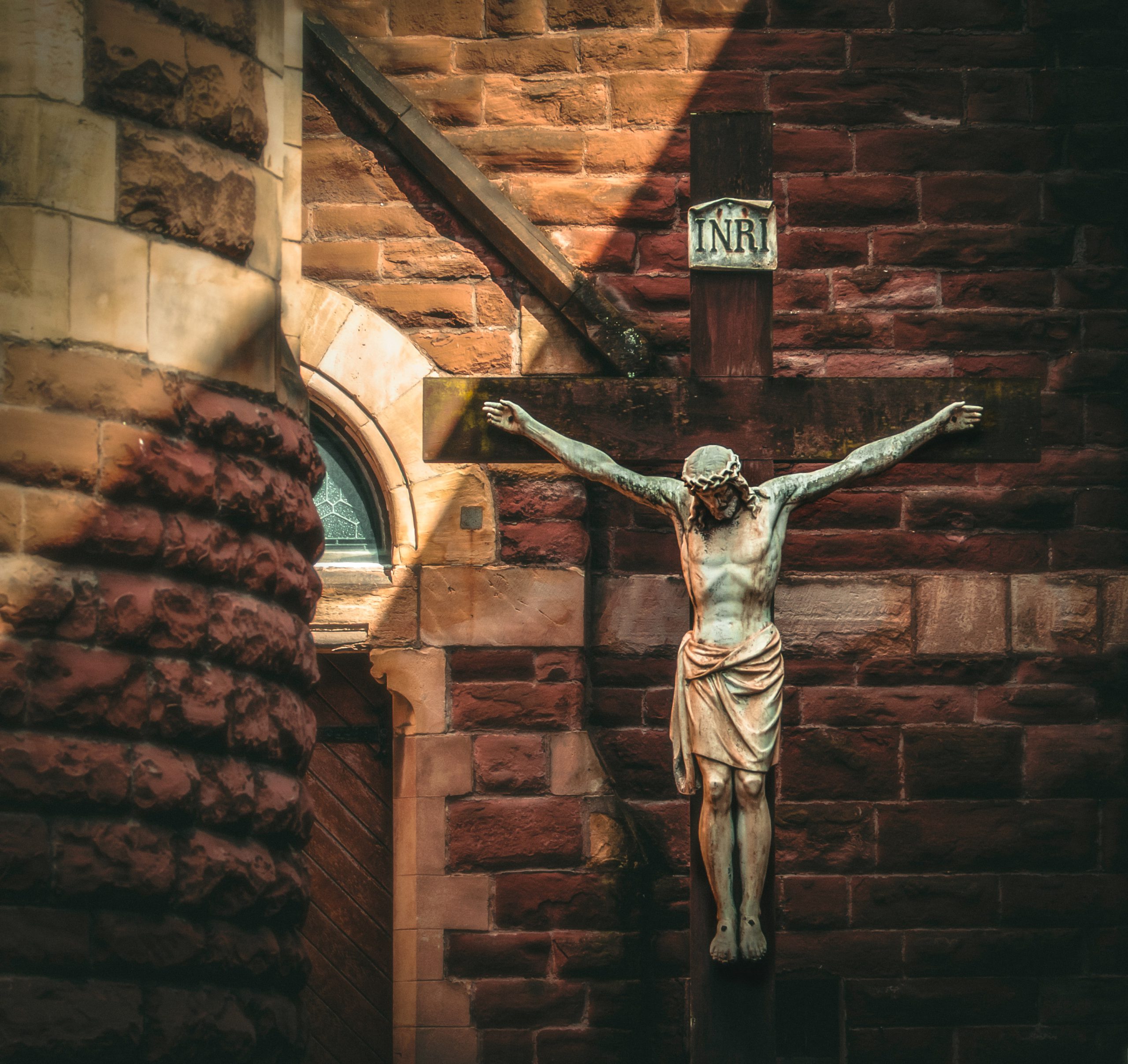Palm Sunday
Palm Sunday, also known as Passion Sunday, begins the Church’s celebration of Holy Week. According to the Catechism of the Catholic Church, Jesus’ triumphant entry into Jerusalem “manifested the coming of the kingdom that the King-Messiah was going to accomplish by the Passover of his Death and Resurrection” (No. 560).
“This was not the first time that the people recognized Christ as the king they expected. It had already happened after the miraculous multiplication of the loaves, when the crowd wanted to carry him in triumph. Jesus knew however that his kingdom was not of this world; for this reason he had fled from their enthusiasm. He now sets out for Jerusalem to face the trial that awaits him. He is aware that he is going there for the last time, for a ‘holy’ week, at the end of which the passion, cross and death await him. He faces all this with complete willingness, knowing that in this way the Father’s eternal plan will be fulfilled in him.
“Since that day, the Church throughout the world has repeated the words of the crowd in Jerusalem: ‘Blessed is he who comes in the name of the Lord.’ She repeats it every day while celebrating the Eucharist, shortly before the consecration. She repeats it with particular emphasis today, Palm Sunday.”
— Homily by Pope St. John Paul II for Palm Sunday
St. Peter’s Square
March 23, 1997
Holy Thursday
Holy Thursday begins the three sacred days known as the Paschal Triduum. This Mass is a special commemoration of the Last Supper, wherein Christ instituted the Eucharist and the priesthood. The Ceremonial of Bishops describes Holy Thursday, saying, “At the supper on the night he was betrayed, the Lord Jesus, loving those who were his own in the world even to the end, offered his Body and Blood to the Father under the appearance of bread and wine, gave them to the apostles to eat and drink, then enjoined the apostles and their successors in the priesthood to offer them in turn” (297).
“What does it mean: ‘He loved them to the end’? It means: until that fulfillment which was to take place the following day, on Good Friday. On that day, God was to reveal how much he loved the world, and how, in that love, he had come to the extreme limit of giving, to the point, that is of ‘giving his only Son’ (Jn 3:16). On that day, Christ showed that ‘greater love has no man than this, that a man lay down his life for his friends’ (Jn 15:13). The love of the Father was revealed in the giving of the Son. In the giving through death.
“Holy Thursday, the day of the Last Supper, is in some sense the prologue of this giving, and the last preparation for it. And, in some sense, what was accomplished on that day goes beyond such a giving. It was just on Holy Thursday, during the Last Supper, that the meaning of: ‘He loved to the end’ was revealed.
“Rightly, in fact, we believe that loving to the end means until death, until the last breath. The last Supper teaches us, however, that, for Jesus, ‘to the end’ means beyond the last breath. Beyond death.
“This is, indeed, precisely the significance of the Eucharist.”
— Homily by Pope St. John Paul II on Holy Thursday
Basilica of Saint John Lateran
April 12, 1979
Good Friday
Good Friday is the only day of the year, when following an ancient custom, the Church does not offer Holy Mass or any sacraments at all, except penance and anointing of the sick. Good Friday recalls the death of Christ, which the Catechism describes saying, “This sacrifice of Christ is unique; it completes and surpasses all other sacrifices” (No. 614). It is a day marked by its somber and penitential character. The Celebration of the Lord’s Passion includes the adoration of the cross.
“As we contemplate Christ dead on the Cross, our thoughts turn to the countless injustices and sufferings which prolong his passion in every part of the world. I think of the places where man is insulted and humiliated, downtrodden and exploited. In every person suffering from hatred and violence, or rejected by selfishness and indifference, Christ continues to suffer and die. On the faces of those who have been ‘defeated by life’ there appear the features of the face of Christ dying on the Cross. Ave, Crux, spes unica! Today too, from the Cross there springs hope for all.
“Men and women of our time, look upon the One who was pierced! Out of love he gave his life for us. Faithful and docile to the will of the Father, he is for us an example and an encouragement. Precisely by reason of this filial obedience, the Father ‘has highly exalted him and bestowed on him the name which is above every name’ (Phil 2:9).
“May every tongue proclaim ‘that Jesus Christ is Lord, to the glory of God the Father’ (Phil 2:11).”
— Words by Pope St. John Paul II at the end of the Via Crucis
The Colosseum
April 10, 1998

Holy Saturday
The Easter Vigil, “the mother of all vigils”, is held after sunset on Holy Saturday. The Roman Missal says, “By most ancient tradition, this is the night of keeping vigil for the Lord (Ex 12: 42), in which, following the gospel admonition (Lk 12: 35-37), the faithful, carrying lighted lamps in their hands, should be like those looking for the Lord when he returns, so that at his coming he may find them awake and have them sit at his table.” The liturgy is marked by the blessing of the Easter Candle, the singing of the Exsultet, extensive use of Scripture, and the celebration of the Sacraments of Initiation, which welcome catechumens and candidates to the Church.
“The Church keeps watch this night, in every corner of the world, and she relives the principal stages of salvation history. The solemn liturgy which we are celebrating is the expression of this ‘keeping watch’ which, in a way, evokes the watch kept by God himself. The Book of Exodus tells us: ‘It was a night of watching by the Lord, to bring them out of the land of Egypt. This night is a night of watching kept to the Lord in every generation’ (Ex 12:42).
“In his provident and faithful love, which transcends time and space, God keeps watch over the world. As the Psalmist sings: ‘He sleeps not nor slumbers, Israel’s guard … The Lord is your guard … The Lord will guard you … both now and forever’ (Ps 121:4-5,8).
“The passage from the second to the third millennium, which we are experiencing, is also guarded in the mystery of the Father. He ‘is working still’ (Jn 5:17) for the salvation of the world, and through his Incarnate Son he leads his people from slavery to freedom, from death to life. All the ‘work’ of the Great Jubilee of the Year 2000 is in some way linked to this night of Vigil, which brings to fulfillment the night of the Lord’s Nativity. Bethlehem and Calvary evoke the same mystery of the love of God, who ‘so loved the world that he gave his only Son, that whoever believes in him should not perish but have eternal life’ (Jn 3:16).”
— Homily by Pope St. John Paul II during the Easter Vigil
St. Peter’s Basilica
April 22, 2000
Easter Sunday
Easter Sunday is commonly called “the eighth day of the week.” The day of Resurrection is a new day. God created the heavens and the earth in seven days, but on the eighth day, the world, broken and scarred by sin, is re-created. The Lord Jesus, who truly died, rose again, his disciples discovered the empty tomb, and rejoiced in coming to learn that he who once was dead now lives.
“As he said to the terrified Apostles on the wind-swept sea, Christ says once more to the men and women of our time: ‘Take heart, it is I; have no fear!’ (Mk 6:50). If he is with us, why should we fear? However dark the horizon of humanity may seem, today we celebrate the radiant triumph of Easter joy. If a contrary wind slows the march of peoples, if the sea of history is tossed by storms, let no one yield to dismay and lack of trust! Christ is risen; Christ is alive in our midst; truly present in the Sacrament of the Eucharist, he offers himself as the Bread of salvation, Bread for the poor, the Food of wayfarers.
“O divine presence of love, O living memorial of Christ our Pasch, for the suffering and the dying you are food for their journey, for everyone you are the sure pledge of eternal life! O Mary, the first tabernacle of history, silent witness of the wonders of Easter, help us to sing with our lives your own Magnificat of praise and thanksgiving, for today ‘The Lord is risen from the tomb; for our sake he hung on the Cross’. Christ is risen, our peace and our hope. He is risen. Alleluia!”
— Pope St. John Paul II’s urbi et orbi address
St. Peter’s Square
April 20, 2003

